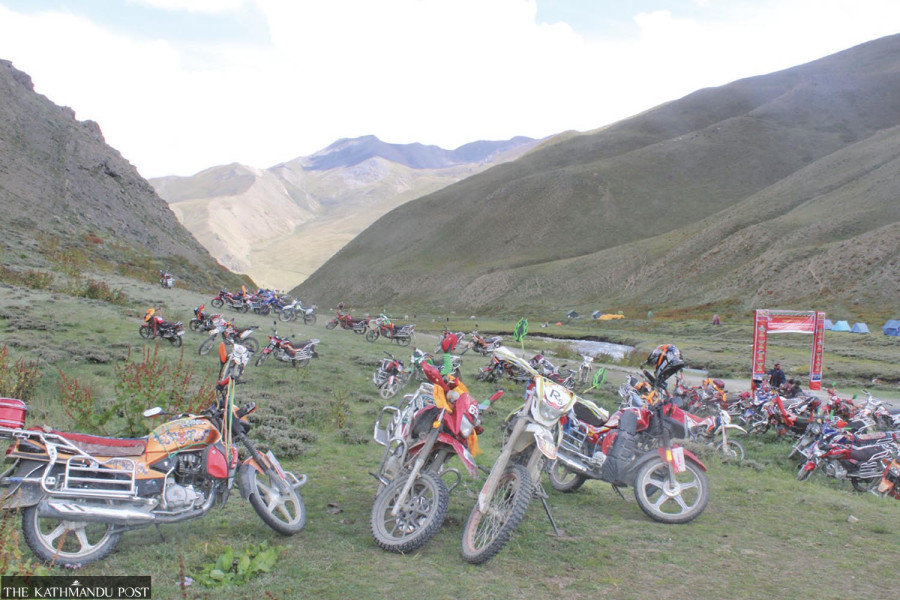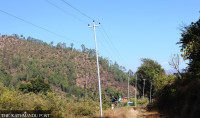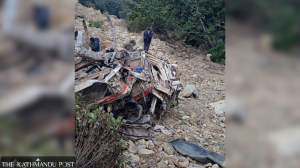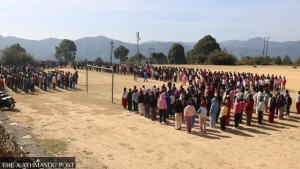Karnali Province
Smuggled Chinese motorbikes power life in upper Dolpa
Villagers rely on affordable motorcycles from across the border to get around.
Ramchandra Neupane
High in the mountains of the Karnali province, Dolpa is one of Nepal’s most remote districts, divided into three regions—lower, middle and upper. The district headquarters Dunai was connected to the national road network just seven years ago, in 2018. But upper Dolpa still has no road access.
Even without roads, Chinese motorbikes are everywhere. Upper Dolpa covers three rural municipalities—Shey Phoksundo, Dolpo Buddha and Chharka Tangsong—and most households there own at least one Chinese motorcycle, primarily because of the proximity to the Chinese border. From villages like Tinje, Dho and Phalek, Tibet is just an hour’s ride away.
Every year, the border opens for around 15 to 30 days after mid-July, during which residents are permitted to cross into Tibet with a temporary border pass from the district administration office.
In this brief window, locals stock up on daily essentials such as rice, salt, cooking oil, clothes, and increasingly, motorbikes.
The price difference is striking. A motorbike that would cost between Rs500,000 to 700,000 in Nepal is available across the border for Rs200,000 to 300,000. As a result, many families in upper Dolpa have opted to import these affordable vehicles.
“Travel between settlements that used to take a full day on foot can now be completed in hours,” says Pemma Dharke Gurung, vice-chairman of Dolpo Buddha Rural Municipality. “There are probably 2,000 motorcycles in these three rural municipalities. They have made life much easier,” he added.
Though it takes two to three days on foot to reach upper Dolpa from Dunai, the terrain at higher elevations flattens into expansive plains. In these landscapes, where the earth seems to meet the sky, motorcycles have become the most practical means of transport. Chinese motorcycles have been running here uninterrupted for years.
There are no customs or immigration checkpoints at the informal border crossings, and the motorbikes brought in are technically smuggled and unregistered. As law enforcement is lax, these have nonetheless become a vital part of daily life.
Fuel supply, which used to be a major problem, has improved. Petrol now comes mostly from Mustang, where roads have lowered transport costs. In Dhu, fuel that once cost Rs600 a litre when brought from Dunai now sells for around Rs300.
Gurung points out that the state has yet to understand or address the hardships faced by remote communities. “Upper Dolpa still isn’t connected to the national road network, which is not just a problem for us but also a lost opportunity for the government.”
The influx of Chinese motorcycles began in 2015. Given the high cost and difficulty of transporting goods using pack animals from Dunai, traders and residents now prefer doing business through Mustang. “Here we have motorcycles of up to 300cc that would cost around Rs700,000 in Nepal, but at the border, we get them for Rs190,000,” said Gurung.
Chief District Officer Rom Bahadur Mahat stated that discussions continue to set up a temporary customs office during the annual opening of the Chinese border in order to manage and potentially regulate revenue collection.
Travel time between Dunai and Tinje and Dho is three days on foot, and high transport costs have made Mustang a more practical trade route.
For now, residents of Dolpobuddha, Chharka Tangsong and Shey Phoksundo rural municipalities continue to rely on Chinese motorcycles, which are illegal on paper but indispensable in the absence of roads and public transport.
It is uncertain when the areas will be connected to the national road network, as the Bheri corridor road is left incomplete, mainly due to lack of budget.
The federal government planned to construct Dunai-Lasikyap-Sisaul-Dho-Tinje road in Dolpa under the Bheri corridor. But the project is in limbo as the government did not allocate any budget for it in the current fiscal year 2024-25.




 18.12°C Kathmandu
18.12°C Kathmandu













